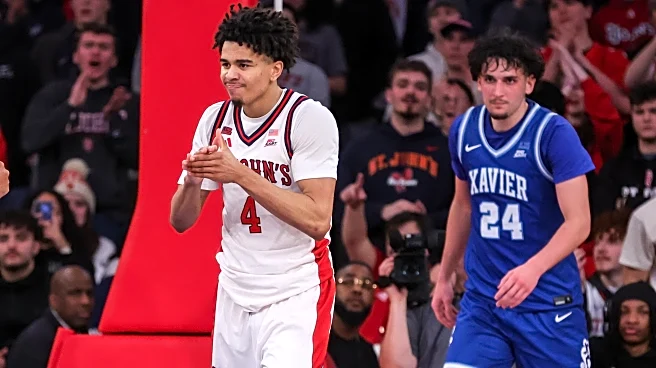What's Happening?
Angeline Boulley, an enrolled member of the Sault Ste. Marie Tribe of Chippewa Indians, is the author of three young adult thrillers that focus on Indigenous girls and young women. Her latest novel, 'Sisters
in the Wind,' addresses the challenges faced by Indigenous children and teens adopted or fostered outside their tribal communities. Boulley emphasizes the importance of storytelling as a means to address intense topics such as rape, incest, suicide, and addiction, hoping educators will recognize the value of these narratives in helping young readers navigate similar experiences. Her work is informed by her background as an educator, aiming to provide stories she wishes her children and former students could have read.
Why It's Important?
Boulley's work highlights the significance of representation and storytelling in literature, particularly for marginalized communities. By addressing difficult topics through her novels, she provides a platform for understanding and empathy, potentially aiding young readers who face similar challenges. Her emphasis on the power of stories underscores the role of literature in education and personal development, advocating for the inclusion of diverse narratives in educational settings. This approach can foster a more inclusive and supportive environment for Indigenous youth and other marginalized groups.
What's Next?
Boulley is working on the fourth book in her series, which will focus on the natural element of water and involve themes related to oil pipeline protests and environmental threats to the Great Lakes. This upcoming work will continue to explore critical issues affecting Indigenous communities, potentially raising awareness and prompting discussions on environmental justice and Indigenous rights.
Beyond the Headlines
Boulley's novels not only provide representation but also challenge stereotypes and cultural touchpoints that often marginalize Indigenous identities. Her work encourages a broader conversation about the role of literature in shaping perceptions and understanding of Indigenous experiences, advocating for a more nuanced and respectful portrayal of these communities.










